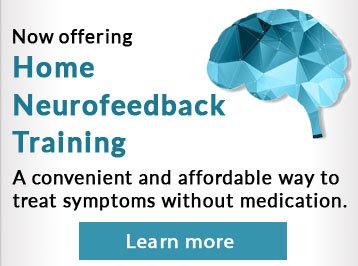Common Childhood Disorders and their Symptoms
Acute Stress Disorder
Children respond to difficult situations and/or traumatic events in their own unique ways. If your child’s response seems to be particularly strong and is impacting day to day functioning after three months, it could be indicative of Acute Stress Disorder, which can lead to Post-Traumatic Stress Disorder if left untreated.
Common symptoms of Acute Stress Disorder:
A foggy or dazed demeanor
Repetitive play where the child acts out the event
Avoiding certain people, places, or items that remind the child of the event
Recurring nightmares
Adjustment Disorder
It is normal for a child to go through an adjustment period when something in their life has been altered (i.e. divorce, moving, transitioning in school). If your child has an excessively hard time dealing with adjustment and/or experiences any of the symptoms listed below for a long period of time, your child may be suffering from an Adjustment Disorder.
Common symptoms of Adjustment Disorder:
Sudden onset of anxious/depressive symptoms
Trouble sleeping
Crying spells
Irritability
School avoidance
Excessive fighting
Isolation
Anorexia Nervosa
Anorexia Nervosa is an eating disorder characterized by severe weight loss, low body weight, intense fear of gaining weight, and a distorted body image. Although adolescent females are most at risk, young children and males are also at risk. These children can be high achieving and appear socially well adjusted, making the disorder easy to overlook.
Common symptoms of Anorexia Nervosa:
Sudden and dramatic weight loss
Food refusal
Excessive exercise and/or dieting
Hair loss
Fatigue
Irregular menstruation in females
Attention-Deficit Hyperactivity Disorder (ADHD)
While all children experience inattention, impulsivity, and/or hyperactivity at one time or another, the difference for a child suffering from ADHD is that these symptoms affect the child over a long period of time. ADHD is a pattern of behavior that impacts the child’s functioning in multiple settings including at home and in school. There are three subtypes of ADHD; predominantly inattentive, predominantly hyperactive, and a combination of both.
Common symptoms of ADHD:
Difficulty sustaining attention
Makes careless mistakes
Difficulty following through with tasks
Organizational difficulties
Often loses things
Easily distracted
Forgetfulness
Frequent fidgeting
Excessive talking
Interrupts others
Difficulty waiting his or her turn
Autism Spectrum Disorder
Children with Autism Spectrum Disorder display persistent deficits in social communication and social interaction and frequently exhibit restricted, repetitive behaviors. Symptoms are usually identified in early childhood, however, can go undetected until the school years begin.
Common symptoms of Autistic Spectrum Disorder:
Deficits in social-emotional reciprocity
Deficits in nonverbal communication
Deficits in developing, maintaining, and understanding relationships
Repetitive movement
Inflexibility
Fixed interests
Hypersensitivity to environmental stimuli (touch, smell, temperature, sound)
Binge Eating Disorder
Binge Eating Disorder is characterized by a large consumption of food, usually in private, with a loss of control followed by feelings of guilt.
Common symptoms of Binge Eating Disorder:
Eating an amount of food larger than most people would eat in a similar period of time
A sense of lack of control over eating during the episode
Distress associated with the episode
Bipolar Disorder
All children experience emotional highs and lows. However, Bipolar Disorder should be considered when the highs include risky and/or impulsive behavior, euphoria, and poor judgment and the lows include an overwhelming depressive state, lack of interest, and a sense of hopelessness.
Common symptoms of Bipolar Disorder
Manic episode:
Inflated self-esteem/grandiosity
Decreased need for sleep
More talkative than usual
Racing thoughts
Distractibility
Displaying risky behavior
Depressive episode:
Depressed mood most of the day
Diminished interest of pleasure in almost all activities
Consistent physical complaints (stomach aches, headaches, etc)
Changes in weight
Changes in sleep patterns
Fatigue
Feelings of worthlessness and/or hopelessness
Inability to concentrate
Recurrent thoughts of death
Body Dysmorphic Disorder
Body Dysmorphic Disorder is characterized by excessive concern over a minor or imaginary flaw. Your child may try many different ways to cover up or correct the flaw, but the obsession does not seem to diminish.
Common symptoms of Body Dysmorphic Disorder:
Frequent examination in front of a mirror or an aversion of mirrors
Refusal to appear in pictures
Preoccupation with one or several aspects of his or her body
Frequent self-deprecating statements (i.e. “I’m ugly.”)
Anxiety or depressive symptoms
Other disorders treated at Behavioral Associates frequently seen in children and adolescents:
Bulimia Nervosa
Chronis Motor or Vocal Tic Disorder
Conduct Disorder
Disruptive Mood Dysregulation Disorder
Encopresis
Enuresis
Excoriation (Skin-Picking) Disorder
Gender Dysphoria
Generalized Anxiety Disorder
Hoarding Disorder
Hypochondriasis
Intellectual Development Disorder
Intermittent Explosive Disorder
Language Disorder
Major Depressive Disorder
Obsessive-Compulsive Disorder
Oppositional Defiant Disorder
Panic Disorder
Persistent Depressive Disorder (Dysthymia)
Post-traumatic Stress Disorder
Reactive Attachment Disorder
Schizophrenia
Selective Mutism
Separation Anxiety Disorder
Sleep-Wake Disorders
Social Anxiety Disorder
Social Communication Disorder
Somatic Symptom Disorder
Specific Leaning Disorder
Specific Phobia
Speech Sound Disorder
Substance Use Disorder
Tourette’s Disorder
Contact us or call our office at (212) 860-8500 to schedule an appointment


